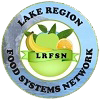Name
Lake Region Food Systems Network (LRFSN)
Our Vision
We envisage sustainable and equitable food systems in the Lake Region Counties of Kenya.
Our Mission
To ensure every human being enjoys the Right to Adequate Food (RtAF) by addressing structural causes limiting effectiveness among actors and interactions along the food value chain.
Our core values
i. Respect for all – acknowledging the worth and dignity of all people, of laws of the land and of regulations of donors who give us resources to do what we do.
ii. Transparency and accountability.
iii. Inspiration.
iv. Creativity.
v. Courage and fortitude to seize opportunities.
vi. Collective responsibility.
LRFSN in detail
The Lake Region Food Systems Network (LRFSN), a registered not for profit organization working in the Lake Region Economic Block of Kenya. Our network is composed of civil society organizations drawn from the 14 counties of the LREB Region that covers Vihiga, Nandi, Siaya, Kakamega, Kisumu, Busia, Bungoma, Trans Nzoia, Homabay, Kisii, Migori, Nyamira, Kericho, and Bomet counties. The Network aims at transforming the lake region’s food systems to ensure sufficient nutritious food for all without compromising the ability of future generations to meet their food and nutritional needs and putting smallholder farmers and other rural people at the center of food systems policy discourse.
Our Network Objectives
i. Ensure sufficient nutritious food for all without compromising the ability of future generations to meet their own food and nutritional needs.
ii. Transform our food systems to make them more equitable and sustainable. This includes making changes and enhancements to institutions, infrastructure, regulations and markets that shape them, and the resources invested into them.
iii. Combat climate change and build resilience to climate shocks among rural smallholder farmers.
iv. Continuously study food systems in the Lake Region of Kenya and identify areas that need intervention to guarantee enjoyment of RtAF.
v. Use local academic expertise and Indigenous Technical Knowledge to advance discussions and contribute to action-oriented regional and national commitments towards sustainable transformation of our food systems.
vi. Align our various County Integrated Development plans, budgets and political manifestoes to long term development visions with a view to ensuring realization of the Right to Adequate Food.
vii. Undertake Social Accountability processes in government projects aimed at ensuring food and nutrition security to ensure that they have greater social impact and good stewardship of resources allocated to them.
THEMATIC AREAS
- Food systems
- Climate Change
- Social Accountability
- Human Rights
- Environmental conservation
- Governance
GOVERNANCE STRUCTURE
We have an ‘organogram’ that includes an advisory board, a secretariat, support staff and county lead persons. Operational decisions are generated by the secretariat and referred to the advisory board for ratification then implemented by the secretariat, staff, county leads (and consultants as may be necessary)
MEMBERSHIP
The network is a union of organizations; not individuals. However, in a few situations, the network may admit to membership high potential individuals like diplomats, University lecturers, Company CEOs and other individuals with immense social capital and skill sets they wish to share with the network. Such individuals will be subjected to vetting as set out the network’s Constitution. Organizations desiring to become members are required to submit a formal application with requisite membership fees and supporting documentation as guided.
